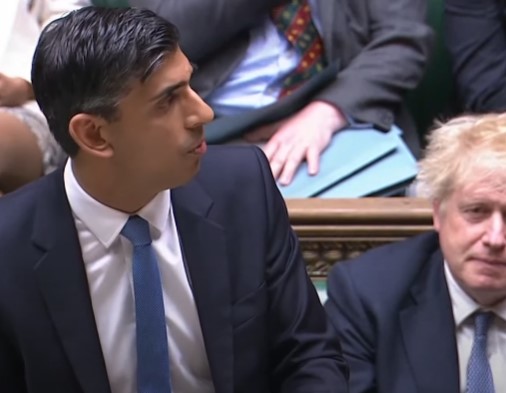A think tank has welcomed government measures to tackle the cost-of-living crisis announced this week but warned charities they are likely to face mounting demand for their support in the coming months as families await payments.
The Chancellor Rishi Sunak announced a major policy u-turn this week by backing Labour Party and Lib Dem calls for a windfall tax on the profits of electricity and gas companies amid soaring energy bills. The government had been resisting this recommendation for several months.
The windfall tax announced this week is set to raise £5bn towards a package of measures including a £650 one off payment to households receiving universal credit and a grant of £400 to all households.
Sunak also announced a “pensioner cost of living payment” worth £300 and six million people with disabilities will receive a £150 payment.
However, many of these payments will not be paid to households until later this year.
While Pro Bono Economics policy director Helen Barnard said “this is a very welcome move from the Chancellor to help ease the financial pain from a cost-of-living crisis” she warned that “in the meantime it is important that people are supported to limit the build-up of debt and its impact on mental health”.
“Providing this vital support will fall to charities that are already facing ever-growing demands, as well as having to cope with staff burnout, rising costs and the falling value of donations due to inflation,” she added.
“The charity sector will undoubtedly step up to this latest challenge as it always does and the Chancellor’s commitment today to support the most vulnerable should give the sector some much-needed breathing space.”
Cost of living crisis ‘worse than covid’
Tony Armstrong, chief executive of community organisations body Locality called for a reduction in costs faced by community groups “who are spearheading the emergency response” to the cost-of-living crisis.
He said the group’s members have said that “the financial impact” of the cost-of-living crisis “is worse than covid”.
The #CostOfLiving crisis support announced by @RishiSunak today is both welcome & necessary. But the Government must also act to reduce costs for the community organisations who are spearheading the emergency response on the ground.https://t.co/Cxp7dc4OY5 pic.twitter.com/pA0s2drH2h
— Locality (@localitynews) May 26, 2022
Meanwhile, Carers Trust ‘s chief executive Kirsty McHugh is concerned that benefits for carers have been excluded from the eligibility criteria of the cost of living grants.
She said the charity is “extremely disappointed to learn that unpaid carers have been shut out of additional support” as their Carer’s Allowance is excluded from the benefits listed for qualifying for the £650 one off payment.
She added: “For millions of unpaid carers, the support announced today will do little more than mitigate new pressures, rather than tackle pre-existing problems.
“It’s way past time for the UK Government to stop ignoring unpaid carers on Carer’s Allowance, and instead make them a priority group for the extra financial support they so desperately need and deserve.”












Recent Stories